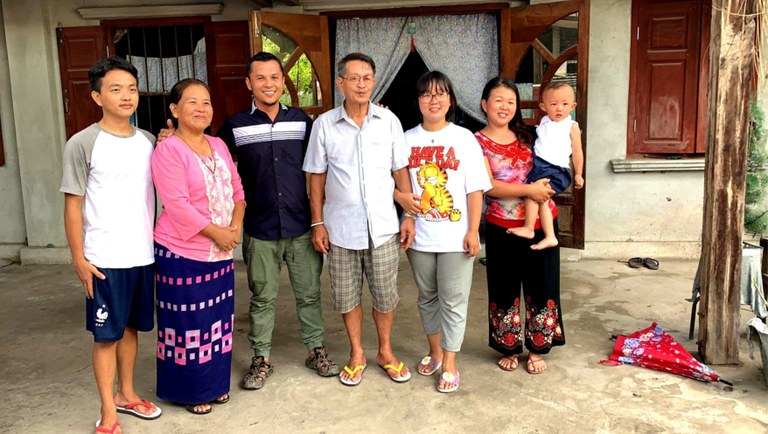What’s in a name?

By Michael Javier, CLM
When we make new acquaintances, we immediately introduce our names after an exchange of warm greetings. Some would even go as far as telling us the meaning of their names. That is when our curiosity about the importance of naming a child in a particular culture is aroused.
The name given to a child is planned by their parents or someone close to them even before the baby is born, a name that somehow indicates the gender of the baby. Some may take the name of a famous celebrity, or a popular sports player, while others may pick a biblical name. In some cultures, the name given to a baby upon birth and registered as such on their birth certificate will also become their baptismal name.
In the Kachin State of Myanmar, people have a unique way of giving names to their children. They do not name them after famous figures. The ordinal birth of the child takes precedence, i.e first child, second child, etc. Besides that, a second name that somehow means “good” or “lucky” is added, with the belief and hope that this will help the child become a better person someday. A ritual called “Ja Htawng Htu” (meaning, pounding of ginger) is traditionally done for the naming of a newborn. They prepare wild ginger (not an ordinary one), salt, and dried fish or meat. Putting them all together into a small mortar, they pound them while the catechist would mention the name of the child, as given by the parents, and would say his/her prayers and wishes for the child and for the family. They usually invite some friends to witness the ritual. For the Catholics, the child will be given a baptismal name or a Christian name upon baptism.
When I arrived here in the Kachin State, they asked me if I already had a Kachin name. I wondered if it was necessary for me to have one. However, I learned that they like to adopt a foreigner as a member of their own family by giving him or her a Kachin name. They usually do the “Ja Htawng Htu” as a way of welcoming a stranger. With an open heart, we did the ritual, and I was welcomed as a new member of the Sabaw household. It was an honor to be named and called “Sabaw Tang San” : Sabaw being the last name of the family, Tang meaning the fifth son, and San meaning pure or clean. The Kachins truly have such a rich cultural heritage.

The Ja Htawng Htu ritual giving Michael a Kachin name

Michael (third from left) and the Sabaw family
